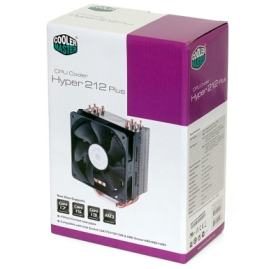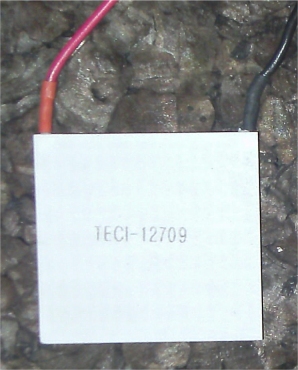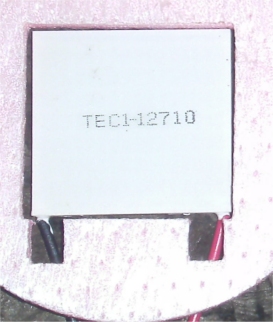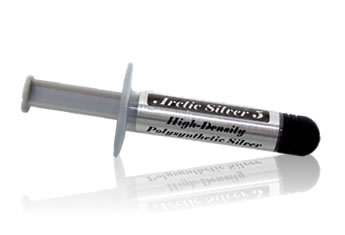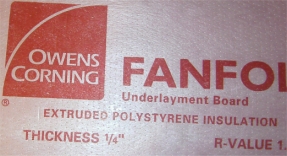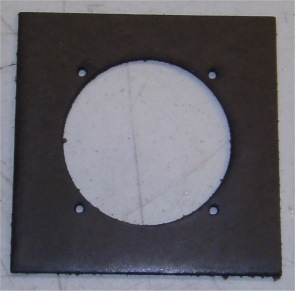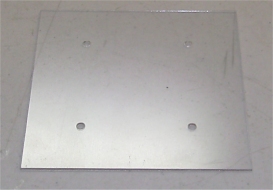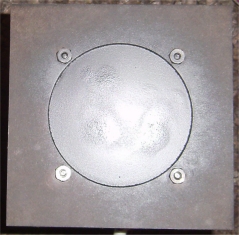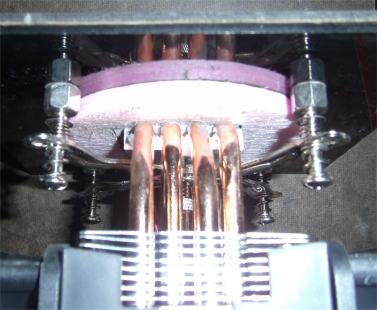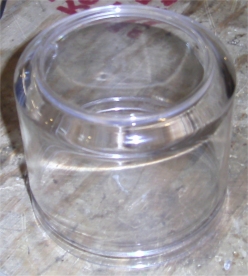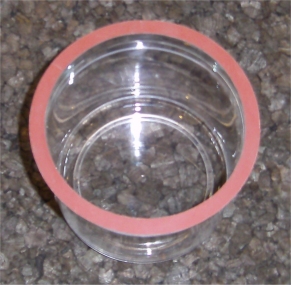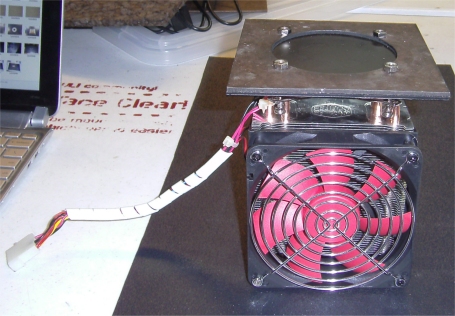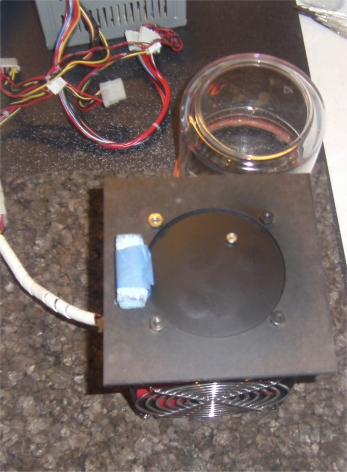Cloud Chamber
Why
To bring LVL1 into the nuclear age, it is necessary to detect the presence of nuclear material. To that end, the Truly Mad Scientist's LVL1 Splinter Group has decided to build a cloud chamber. The chamber built does not utilize dry ice. Instead it uses peltier coolers. The basic design is from Rich Olsen of Nothinglabs.com and his Instructable. Minor design changes were made to accommodate its use in future experiments.
The Build
The Bill of Materials:
- Cooler Master Hyper 212
- Two Thermaltake 120mm Case Fans (Black/Red)
- TECI-12709 (136.8 watt) Peltier Cooler
- TECI-12710 (168 watt) Peltier Cooler
- Artic Silver Thermal Compound
- OwensCorning Pink Insulation Sheet 3/16th inch
- OPTIX Acrylic Sheet 0.093 thick
- Tempered Hardboard 9x12"
- One Quart Acrylic Canister
- Rubber Gasket Sheet 6x6"
- 250 Watt ATX Power Supply
- 4 Pin Molex Connector Male
- Cable Wrap
- Styrofoam Cup
- Isopropyl Alcohol
- sponge
- Black Spray Paint
- Super Glue
The Components:
- Cooling Assembly
- Cooled Platform
- Chamber Vessel
Assembly
Cooling Assembly
The Thermaltake 120mm fans are mounted on each side of the CPU cooler radiator. Fans are arranged in a push-pull formation. The fans are held on the radiator by mounting clips. The clips fasten to notches on the radiator fins. The mounting is not secure and the fans can be adjusted up/down the radiator surface.
The TECI-12710 pelter cooling block is afixed to the cooling block above the radiator. The peltier cooler wires are run parallel to the cooling pipes between the radiator and cooling block. The 12709 peltier cooler is afixed to the other peltier with thermal compound.
IMPORTANT : Make sure the peltiers are facing hot side toward radiator and cold side away from radiator. Getting either or both peltiers backwards will result in destruction of the peltiers.
Cooled Platform
The Cooled platform has three layers and uses the Intel Retention Clip from the CPU cooler to attach to the cooling assembly. The top assembly is a 5.5x5.5 inch tempered hardboard square with a 3.5 inch hole cut in the center. Around the hole are four smaller holes for the retention clip fastening screws. The four holes are arranged to match the retention clip and do not form a square.
Beneath the hardboard is a 5.5x5.5 inch acrylic square (0.093 inches thick). The acrylic squares has four small holes matched with the hardboard and retention clips.
The top facing surface of the acrylic is spray painted black. The two squares are held together by mounting hardware nuts and screws intended for the motherboard when used as a cpu cooler. These mounting nuts anchor the platform for attachment.
Beneath the acrylic, a circle of pink insulation is centered. The insulation has a recess square cut in it to position and surround the peltiers from the cooling unit.
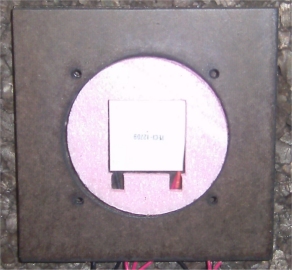 (illustrative image with peltier)
(illustrative image with peltier)
The cooling assembly and platform are held together by the retention clip which is positioned under the cooling block with the screws being fastened to the mounting nuts.
Chamber Vessel
The arcylic canister is disassembled. The lid and hinging mechanism are discard.
The gasket material is cut to produce a ring gasket for the mouth of the container. The gasket is attached with super glue.
Wiring
The wiring for the cloud chamber is consolidated into a single 4 pin molex plug used with PC power supplies. The fans and the TECI-17210 peltier are wired in parallel to the +12V and ground of the plug. The TECI-17209 is wired to the +5V and ground of the plug.
Operation
The chamber setup is straight forward. A source of isopropyl alcohol, in this case a small sponge soaked in the alcohol, is placed on the cooling platform or attached to the inside of the chamber.
A radioactive source or sample is placed on the cooling tray toward the middle of the circle. The chamber is closed by placing the chamber vessel on the platform (open end down). The cooling unit is powered and allowed to reduce the temperature at the center of the platform to approximately -15 degrees fahrenheit.
A static electric field in the chamber helps, so the styrofoam cup is rubbed against one's head. The cup gets a statis charge and the cup is placed on top of the chamber.
When the temperature is low enough, the show begins.
